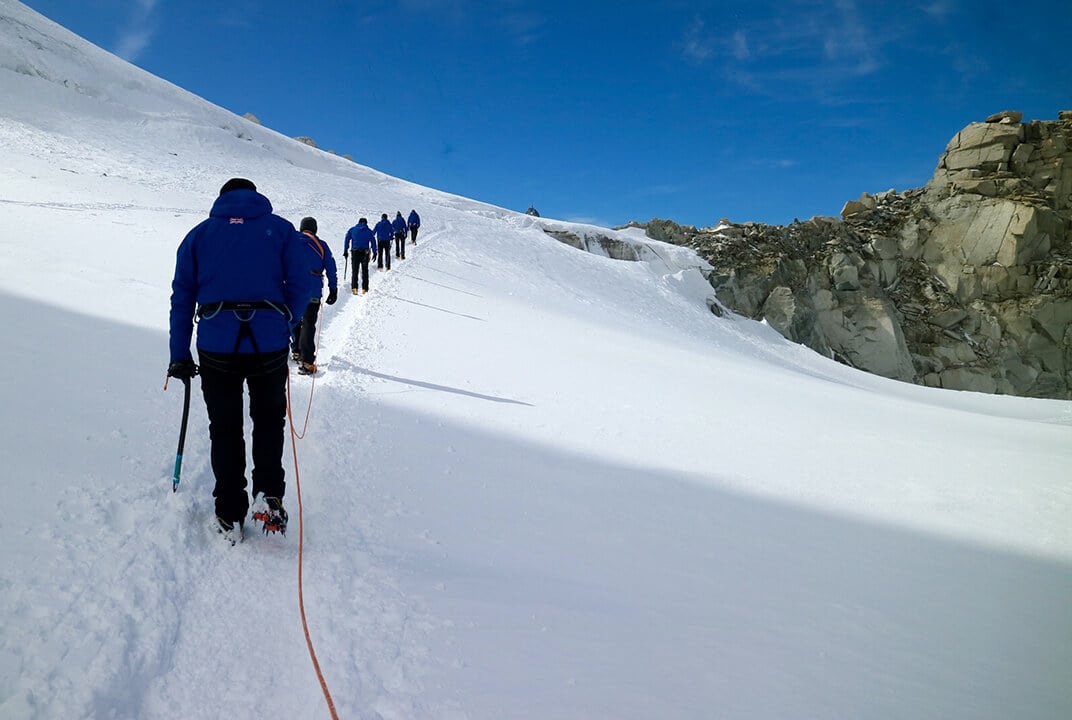Insight | Supporting those who make a bigger difference
Supporting those who make a bigger difference
null
Helping to improve lives through our satellite communications is something that Inmarsat’s Global Government business unit takes huge pride in, both on a government level as well as on a more personal level – committing not only airtime hours to some amazing causes but also our own man hours.
In 2017 alone, we have provided communications for expeditions as diverse as the Australian Royal Flying Doctor Service’s Gibb’s challenge; the Walking with the Wounded’s assault on Mount Kilimanjaro; and we have participated in numerous disaster relief expeditions as part of our commitment to first responder charity Team Rubicon, which puts military veterans’ skills and experience to good use when natural disasters strike or humanitarian crises occur.
Inmarsat Global Government has also been engaging with multiple organisations, taking part in exciting expeditions all around the world. We are committed to ensuring the safety and welfare of those exploring and researching remote areas in extreme conditions, through the provision of vital satellite communications equipment and airtime. It is our mission to ensure these teams are never without BLOS (Beyond Line-of-Sight) communications.
These expeditions often find the teams in challenging, inhospitable environments and our goal is to maintain crew safety throughout while also providing that much-appreciated link back home. In addition, our connectivity also enables the teams to share the adventure in real time via media interviews and with supporters on social media.
Greenland 2015 – 65DN
65 Degrees North (65DN) was formed in 2014 to offer wounded and ex-servicemen and women a chance for rehabilitation by giving them the opportunity to participate in specialist expeditions and changing the perception of physical and mental disability through the spirit of adventure.
Our support for 65DN goes back to 2015, with the world’s first successful unsupported crossing of the Greenland ice cap by an amputee. The team of three ex-servicemen, one of whom lost a leg while serving in Afghanistan, skied through a 27-day challenge raising funds for UK charity Help for Heroes along the way. Given the nature of the expedition, the team were heavily dependent on our satcoms for medical and emergency back-up.
Dhaulagiri 2016 – British Armed Forces
Last year, Inmarsat played a key role in the British Services Dhaulagiri Medical Research Expedition (BSDMRE). The team set off to conduct research into high altitude physiology and acute mountain sickness, while also giving 36 servicemen and women from the Royal Navy, the British Army and the Royal Air Force the opportunity to train in a unique and challenging environment.
Equipped with six IsatPhone 2 mobile satellite phones, four BGAN terminals and an IsatHub terminal, the team were able to communicate with each other and the rest of the expedition at base camp to coordinate activities and send real-time data back to the UK for analysis. Planned studies included the effects of exercise at high altitudes, biomechanical changes in walking and balance and heart rate monitoring.
Other members of the expedition were also able to use their own smart devices with the IsatHub to contact home and update social media.
Kilimanjaro 2016 – 65DN
65DN successfully climbed Mount Kilimanjaro, the world’s highest freestanding mountain, to raise funds for The Royal Marines Charity.
Antarctica 2017 – 65DN
The 65 Degrees North set out again in 2017, this time to summit ‘the top of the bottom of the world’; one of the coldest, most remote places on Earth – Antarctica’s Mount Vinson. Not only did the team achieve their goal they also managed what is believed to be a world’s first – a live video feed from the summit of Mount Vinson powered by our connectivity!
Everest 2017 – Gurkhas
On 25 April 2015, as a team of Gurkhas made their first acclimatisation rotation on Everest, a catastrophic earthquake hit Nepal, bringing chaos and destruction to the Gurkhas’ homeland.
After the failed attempt, and armed with Inmarsat comms, a team of serving soldiers and officers from across the Brigade of Gurkha reached the summit of Mount Everest. This was the first time that a serving Gurkha has reached the summit.
RAID 2017 – 65DN
Most recently, a 65DN crew of wounded ex-service men and women embarked on a gruelling cycle across the Pyrenees, successfully completing the challenge in under seven days and raising money for The Royal Marines Charity.
We look forward to supporting the 65DN team for a fourth time in 2018 when they commence their next challenge – scaling Mount Aconcagua in Argentina, and a number of other projects we have committed to.
About the author
George Crisp joined Inmarsat as an Intern in 2014, following graduation from his Bachelor’s degree in Economics at the University of Leicester.
He moved into a permanent position six months later, working within the Global Government division as a Project Manager. In addition, George manages Inmarsat Global Government’s external support programme, and is involved in the planning and execution required to enable the support of the various groups and charities that Inmarsat connects.


